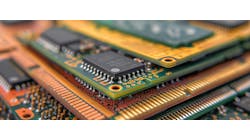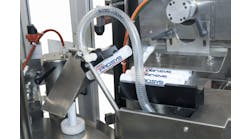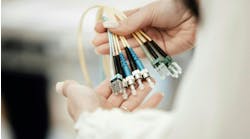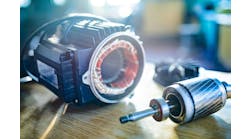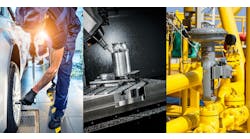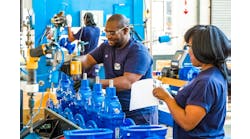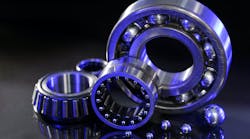Spindle Bearing Success: 3 Key Factors in Machine Tool Bearing Selection.
Today’s machine tools rely on various specialized components that allow them to operate smoothly and efficiently while holding tight tolerances. High-quality precision bearings are particularly important to the accuracy and reliability of machining equipment as they are responsible for directing and enhancing spindle movement. These components generally consist of balls or rollers that are positioned between inner and outer raceways.
Ceramic hybrid spindle bearings can provide increased spindle speed, improved stiffness, and enhanced resistance to high temperatures. The ceramic balls used in these bearings operate at lower temperatures, which prolongs the service life of lubricants. They also operate at lower vibration levels, resulting in increased spindle rigidity.
Other common types of bearings include high-precision cylindrical roller bearings, angular contact bearings, and ball screw support bearings.
When selecting ball or roller bearings, there are 3 key factors to keep in mind:
- Contact angle
- Preload
- System rigidity
Contact Angle is the line of contact along which the ball bearing touches the raceways of the assembly. This angle is determined by the thrust loading and radial play. Ideally, the contact angle should be 15 degrees—this is the optimal balance between axial and radial capacity and rigidity. To increase the axial rigidity, some systems have a contact angle of 25 degrees. No matter which angle works best for your system, it's essential to choose the bearings that operate best at the given angle.
Preload is a force that holds the raceway and rolling element surfaces under pressure. It's a constant elastic compressive force that stops the parts from moving in an uncontrolled manner (either axially or radially) even when they're under load. The right bearings will tolerate this additional force without breakage.
System Rigidity. Machine tools generate several different forces that ball and roller bearings need to be able to account for. Factors such as housing stiffness and bearing stiffness determine the machine's system rigidity and ability to produce consistently precise results.
Supporting the unique needs of OEM and MRO markets across the nation, Emerson Bearing experts can assist with the selection of the appropriate bearings, maintenance tips, and more.
Visit EmersonBearing.com or contact (800) 225-4587.



